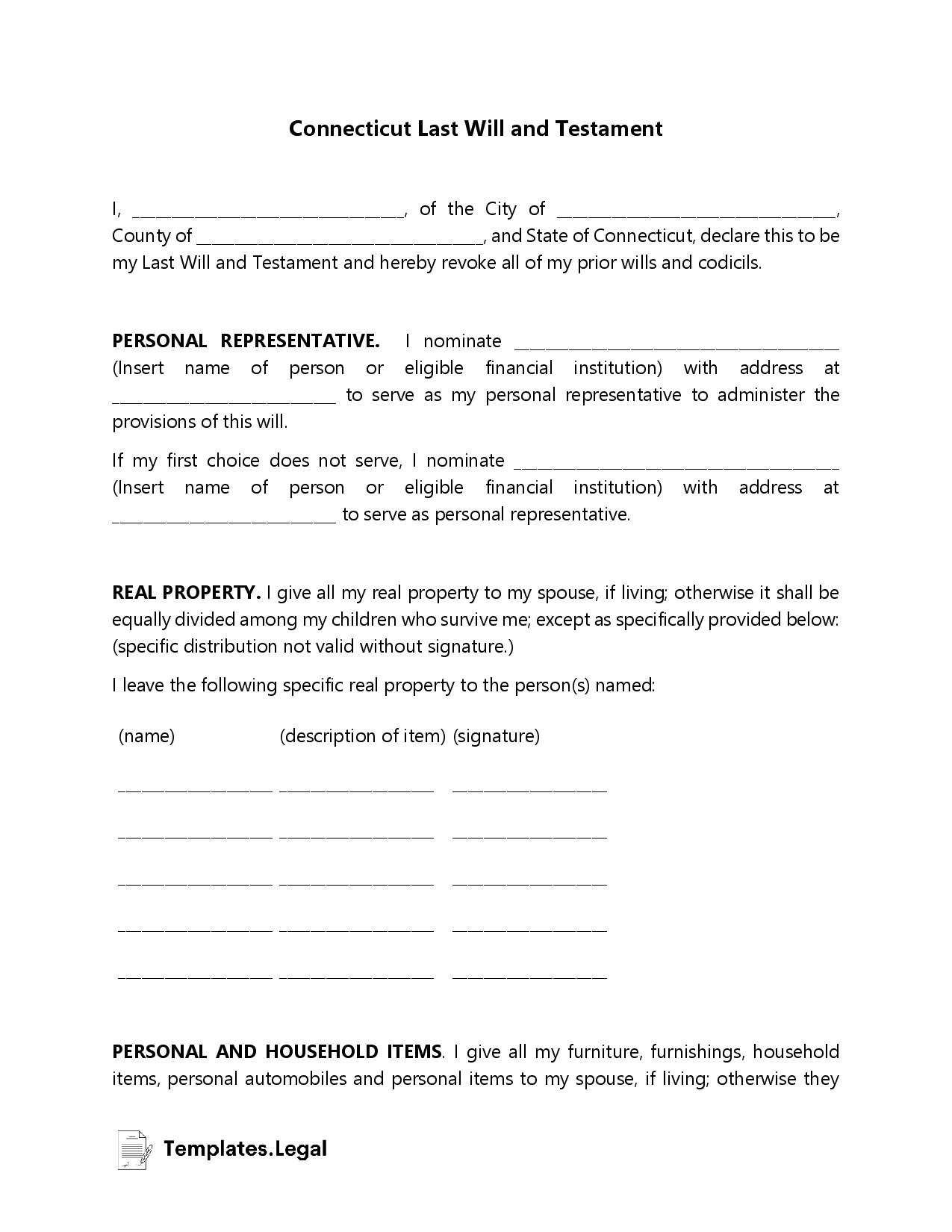Connecticut Last Will and Testament
When it comes to a Connecticut last will and testament, the state’s probate courts oversee the division of property and estates per the guidelines set forth by the testator, or the person who has made the will.
In Connecticut, a will must be created by an individual at least 18 years or older. The testator must be of sound mind, and the will must be in writing for it to be valid. Generally, a will may not be revoked except in an instance of physical damage occurring by the testator, or a second party acting under the testator’s direction.
A Connecticut last will and testament template may be used, although the process does not require a Connecticut will template. If changes must be made to the last will and testament form, Connecticut requires an amendment signed the same way as the initial will.
Connecticut Last Will and Testament Template
Requirements for a Will to be Valid in Connecticut
For a will to be valid in Connecticut, the testator must follow specific guidelines:
- Divide the desired property between inheritors
- Choose an executor
- Choose a guardian if children are present and underage
- Sign the will in front of at least two witnesses
As long as these requirements are met, a last will and testament in Connecticut is considered valid and will be handled as such by the probate court.
Notarized Will in Connecticut
Connecticut does not require a notary’s signature for the will to be valid. However, a notary’s signature makes the will considered self-proved. A self-proved will need not be proved by the probate court when the time comes. This quickens the process and allows a settlement to be reached quickly.
Cost to Create a Will in Connecticut
While a free last will and testament in Connecticut might not be possible, a simple form allows the process to move forward at a reasonable price. Some attorneys charge hundreds or thousands of dollars, depending on the complexity of the content.
A testator can create their own will in Connecticut. One can typically find simple resources to guide them in the process, such as a Connecticut will template. As long as a testator follows all state requirements, the will must be accepted as valid.

